“There aren’t eight midgets like me in the race”: The remarkable resilience of Grant Patterson
Paralympic swimmer Grant ‘Scooter’ Patterson, who has a form of dwarfism, has his parents to thank for his resilience and straight-shooting “say it like it is” attitude to disability and life.
Swimmer Grant ‘Scooter’ Patterson might just be the most positive person you will ever read about.
Scooter, who has a form of dwarfism, is also very funny, self-depreciating and a fan of a joke, including at his own expense and about his disability.
His parents taught him to be resilient and ‘tell it like it is’. So he does.
When he was at school, if he was bullied, his matter-of-fact mum would tell him to just get on with it.
“(Mum would say) ‘look mate, you are what you are. For you to get through it, you can’t let words offend you. Secondly, you need to think of different ways to get around the bullies. Ignore them and find different people to hang out with’,” Scooter said.
And when he said the Paralympics could be unfair in having competitors of widely different abilities in races, his parents told him complaining about ‘the system’ wasn’t going to help.
“In Paralympic sport in general . . . not everything’s fair. There aren’t eight midgets like me in the race, it’s all different,” he now reflects.
Scooter - who captured Australia’s collective heart in Tokyo with his infectious positivity - is now “training like a beast” for the June 2022 World Para Swimming Championships in Portugal, and is determined to win gold.
He also wants to find “a lovely lady” to settle down with; a mission he hopes will be assisted by his transformation from “fat bastard (who) looked like Jabba The Hutt from Star Wars”, to fighting fit star swimmer.
This is Scooter’s story.
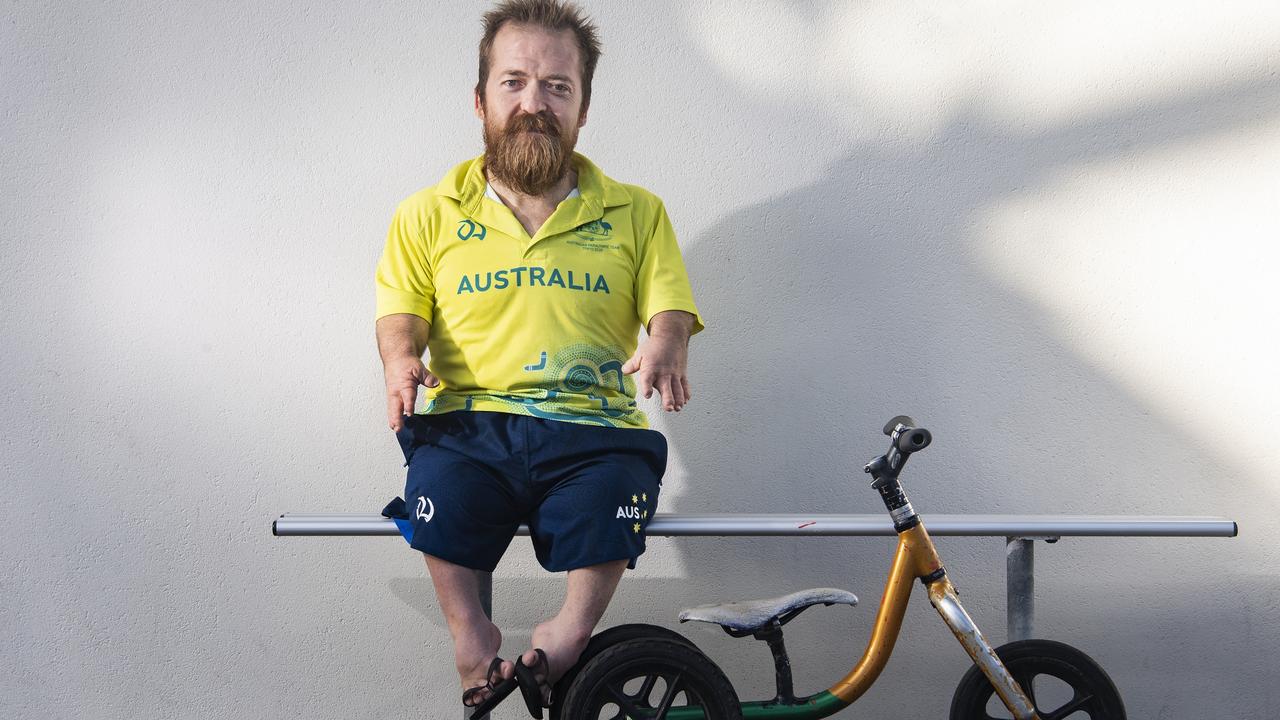
HM: Scooter, are you the most positive person you know?
GP: I think so. I always have a go at everything, and never give up.
HM: You were born with diastrophic dysplasia. What is that?
GP: It’s a rare form of dwarfism; there’s about a one in a million chance of it happening. I always joke that my parents lost their chance of winning the lottery when they had me. Gone. They got me instead.
HM: How many in Australia have diastrophic dysplasia?
GP: I think somewhere between 10 and 20. I am talking to two girls now, Maddy, and Briella. They’re coming up to Cairns next week, and they’ve got the same condition that I have. They touched base with me when I was over in Tokyo. They saw me do what I did and saw that I was the same as them. I’m more than happy to share my time and talk to them about different things. I never had anyone like myself when I was growing up, and I found it very difficult, so I think it will be good for them to have someone to talk to and bounce ideas off. I really like being able to help. I watched the Shane Warne memorial last week, and what he did for disabled kids, and able-bodied kids, wow. I would like to be half the man that Shane was.
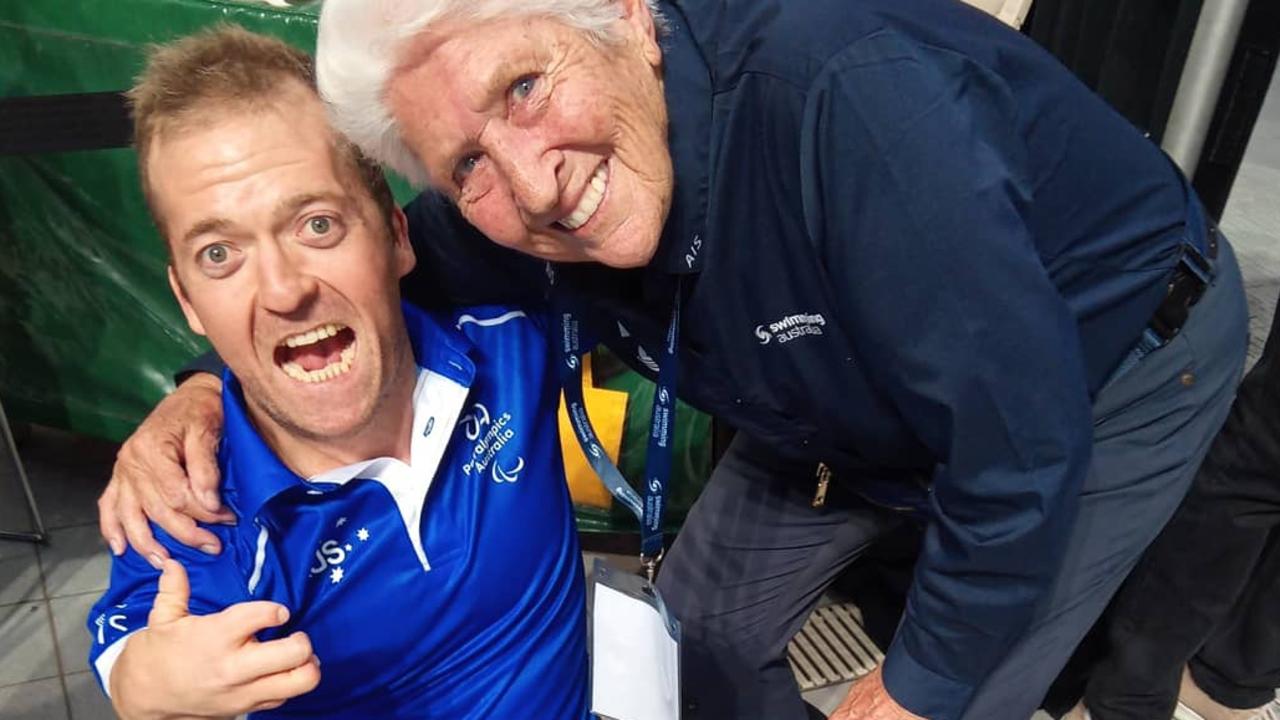
HM: You spoke about being a mentor for students and young kids now. How was school life for you?
GP: When I was at school, it was a bit different to what it is now luckily. We didn’t have social media, so I wasn’t being cyber bullied which I am sure I would have. I had the occasional bully that would come and put my electric scooter into neutral, and because I am up on the chair, I’d have to climb down and put it back into gear. I was lucky I had two wonderful parents that built a lot of resilience in me. As a kid, I’d be sad because someone would pick on me, but mum would say, ‘look mate, you are what you are. For you to get through it, you can’t let words offend you. And secondly, you need to think of different ways to get around the bullies. Ignore them and find different people to hang out with’. It was challenging being a short person in a wheelchair, but I did my best. I was a very active person at school, I loved kicking the footy at lunch time, so I found a few mates doing that.
HM: You were dead keen to play competitive footy and cricket. When did you realise you couldn’t compete locally?
GP: At 10-years-old. My parents said, ‘mate, this sounds really harsh, but we can’t sign you up for the under 11s football, it isn’t going to work. They can run around a lot faster than you, you can’t move like they can and you’ll get hurt” I realised they were right. That’s why I turned to swimming at 11-years-old. It was good for my body, and I could compete in it.
HM: You found your place. Did you like swimming, or did you do it because you could?
GP: That’s a great question. I think at the start, it was more for medical purposes. When I swam, it enabled me to move all parts of my body and it stopped me from getting severe scoliosis in my back. As I got a bit older, I realised I was OK at it, and I started to really enjoy competing. That said, I have also competed in a 70.3 Iron Man and raised over $10,000, helping a little girl Justine and her parents to afford an insulin pump. This experience on the bike and road nearly killed me, and I was happy to get back in the pool.
HM: Some people are fortunate to have incredible parents. You did.
GP: I did, they are my heroes. They have given me the power to take on the world and be proud of who I am. Because of them, I have resilience and gratitude and I have my head screwed on, with common sense. I can go out, get a job and own my own place. That’s all because of my parents. Without them, I wouldn’t have had the skills to do that. My brother and I, both have our own houses, we have jobs, and we are stable in life.
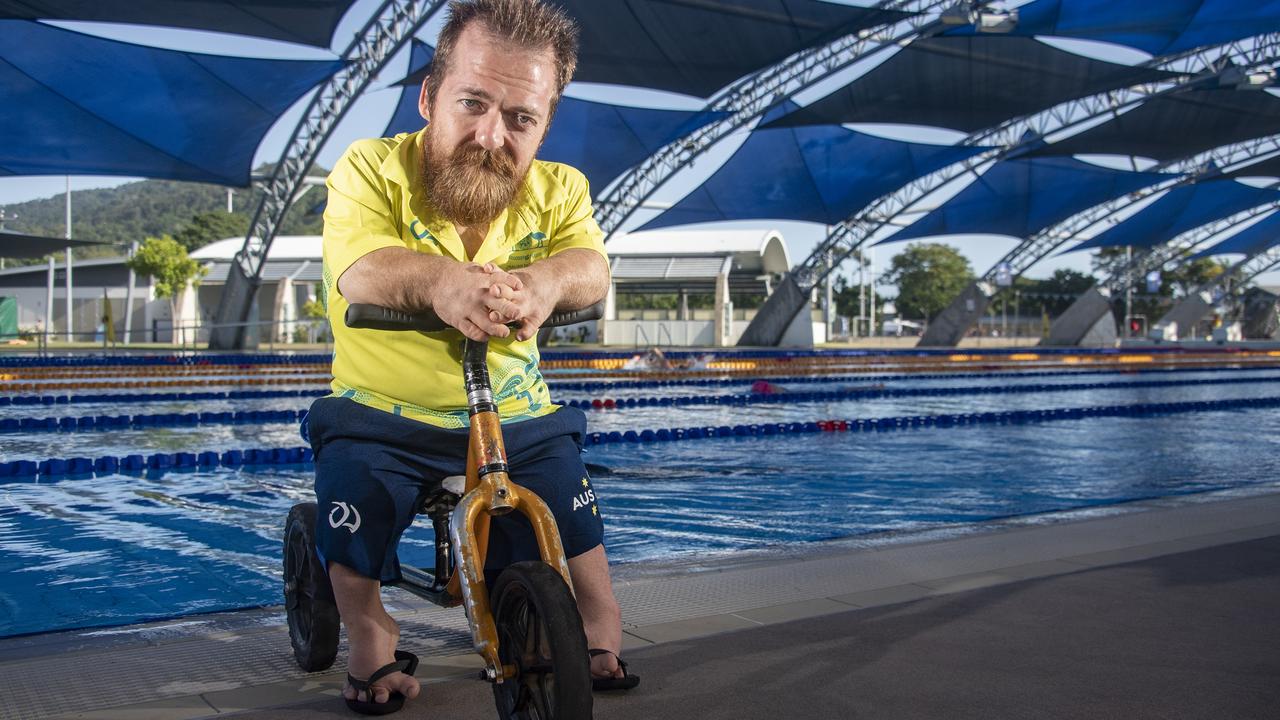
HM: When did you start swimming competitively?
GP: My career started in 2000. I’d won some state titles, and I wanted to go to nationals but didn’t make it. My dream was to swim for the country. In 2003 my coach, Adam Luscomb, left to go back to Melbourne to run MSAC. I started to have a few issues with my ears and my shoulders. When he left, I got a bit depressed, and didn’t have the same passion I once had.
HM: What changed?
GP: Five years later in 2007, and I ran into Herbie Howard, who is my head coach now. He said, ‘mate, how about you get back in the water and swim competitively again? Chase that dream of representing Australia at the Paralympics’. Before 2007, when I finished high school, I was a fat bastard. I looked like Jabba The Hutt from Star Wars. The main reason I was in the pool was to lose weight to try and find a girlfriend. I did two sessions a week. Herbie was always in my ear. In September of 2007, I got back in and said, ‘let’s have a crack at this’. In 2008, at the Paralympic trials, I missed out by one-and-a-half seconds. Herbie said ‘look at what we’ve done in six months. Imagine what we can do in four years’.
HM: You kept at it?
GP: I did. I made my first team in London in 2012. I then missed out qualifying for Rio in 2016.
HM: Did you feel like hanging up the togs?
GP: No, I didn’t. I had to finish the mission, which was to medal for the country. So I trained harder, sacrificed more, and boom, two medals in Tokyo.
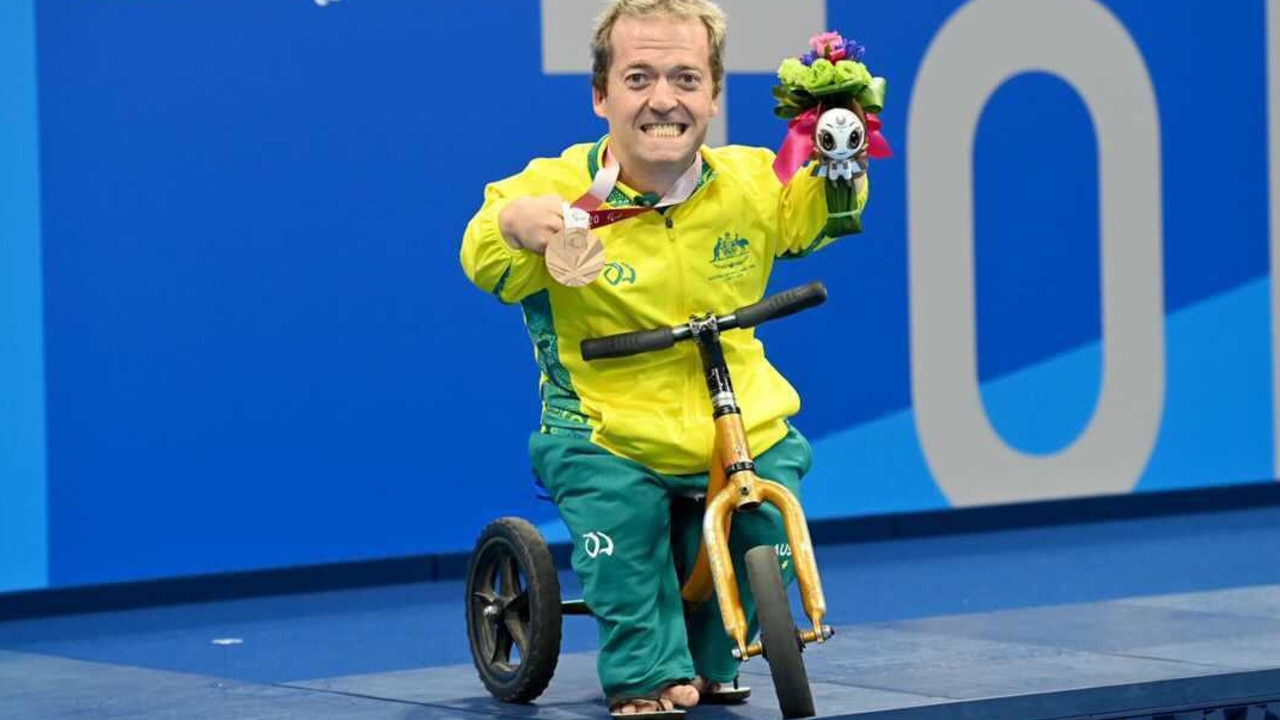
HM: It was really a 13-year dream come true in Tokyo. What kept you so motivated?
GP: I wanted that medal.In Paralympic sport in general, as you would have seen, not everything’s fair. There aren’t eight midgets like me in the race, it’s all different. In 2016 I just wasn’t fast enough. I was seventh in the world, and I needed to be fourth to make the team. I had to miss out that year. I remember, all I wanted to do was complain about the system. My parents sat me down and said, ‘you know what you have to deal with, but it’s up to you whether you’re willing to hang around and go for another four years. Complaining about the system isn’t going to do you any favours’.
HM: Good advice.
GP: Really good. I knew that, but at that point in time I was heated, I was upset. I’d been to London, and the plan was to go to Rio to try and win a medal. I remember sitting down after my parents talked to me, and I thought to myself, ‘imagine if I go to Tokyo and win a medal after not being selected in Rio. Then I’d have a great story.’
HM: You made a promise to give up the drink leading up to the Tokyo Paralympics. Did you reconsider after the Games were postponed?
GP: No, I didn’t. It was nearly two years. I stopped in December of 2019 and didn’t have a drink until we finished in Tokyo.
HM: A beer would never have tasted so good.
GP: Never. We all sat around, had a chat to each other, and it was great. We’d all been under the pump for a month, so it was good to sit down and relax. Jimmy Barnes was on a Skype call performing a concert. That was cool. It was good to sit back, relax, and chat with the other athletes. A well-earned drink!
HM: How important to you is your relationship with Herbie?
GP: Very important. We have been working together for 14-years now, and to be honest, he’s not one of those typical coaches with a sports science degree. He’s been around for a long time, and we are always learning together. There has been no one like me on the team before, so we are creating the pathway for others to come. It’s cool.
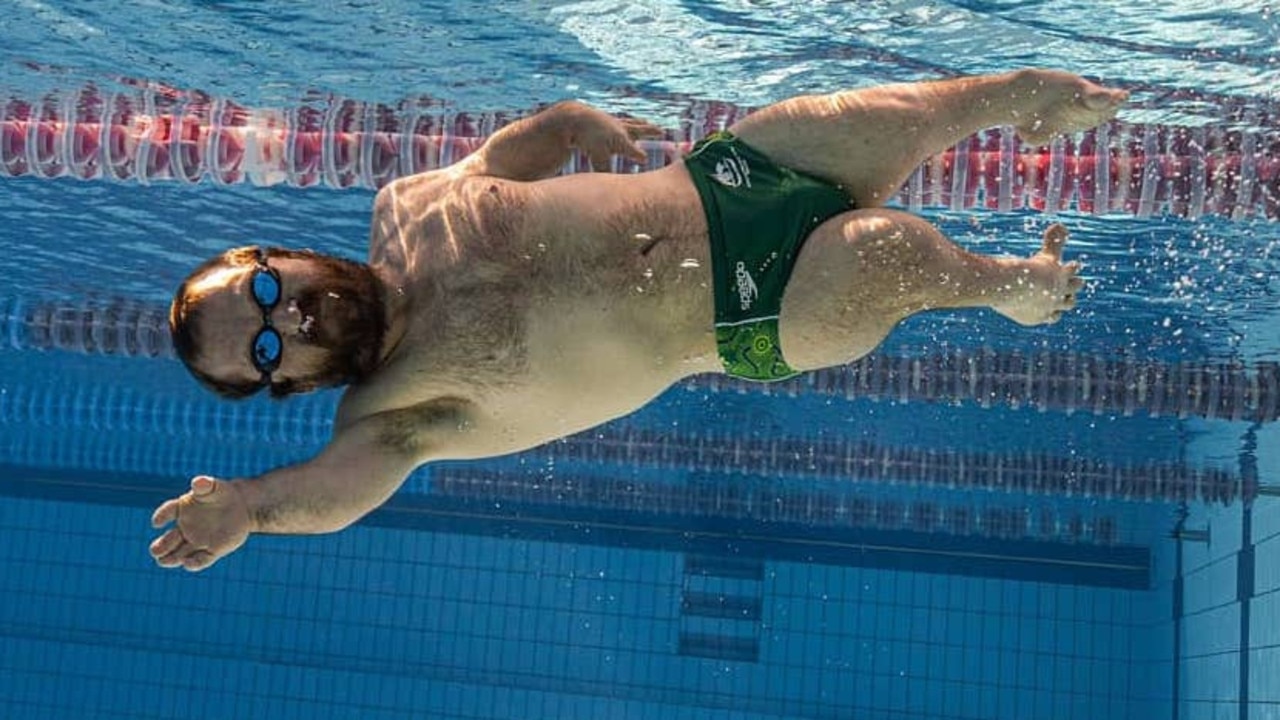
HM: What were the hardest moments on the way to Tokyo?
GP: Training is no problem, I love that, but I’d say mentally preparing myself for results, and not trying to think about it too much has been challenging at times. I went to London ranked second in the world, and came sixth in the main event. That was a learning curve for me. I have spent a lot of time overcoming the fear of failure. I went in thinking if I got a medal, I’d be able to share it with my family, my friends, and they’ll all think I’m great. But my family and friends didn’t care if I won a medal or not, they’re still going to be there no matter what the outcome is. When you are caught up in the heat of the moment, when you’re young, you forget those things. Another thing I learnt was trying to control the uncontrollable. I have learnt to stop doing that.
HM: Who helped you with that?
GP: A psychologist on the team back in 2012 Jason Patchell helped me, just to make me realise that I wasn’t missing out on anything, and I wasn’t going to lose anything by not winning a medal. At the end of the day, if you win a medal, it gives you the key to a lot of doors, but I am still the same person.
HM: How much longer do you want to compete for in the pool?
GP: 2032 and then I’m out.
HM: You serious?
GP: I’m serious … if I make it. That’s what I told Herbie. I’ll be 43 … everyone says too old, but everyone says a lot of things that are wrong. That Brisbane crowd would be sensational. It’s getting harder and harder, but I enjoy training the most. There’s a lot of pressure on your shoulders when you race, there’s expectations, but I love training. While I still love it, then I’m going to keep doing it. Go Kart racing is another passion of mine, so if that takes off, I’d do that as well.
HM: That’s the new dangerous hobby for you. Go Kart racing.
GP: It’s just a hobby. Nothing serious. I’ll give it my best, like everything I do in life.
HM: What are you training for now?
GP: The World Championships in Portugal, which is in June. I’d like to win a gold.
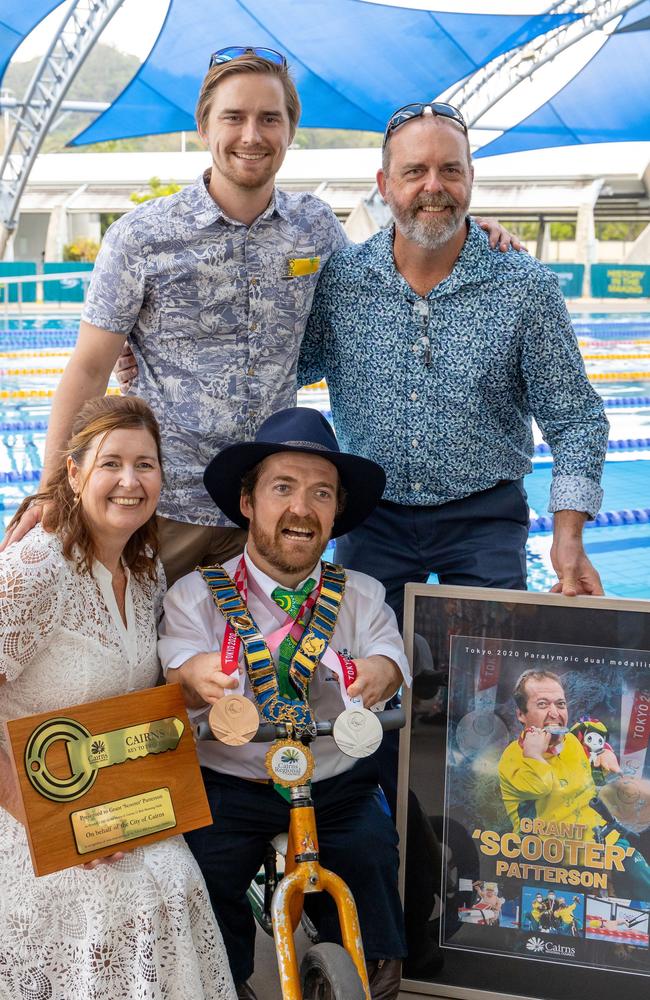
HM: And then once 2032 is all over, what becomes your purpose?
GP: My hunger for sport and accomplishments in life is my worst enemy. When it comes time to throw in the towel, I’ll be beside myself if I don’t have something to focus on. I am still training like a beast now, so it’s not easy for me to put that aside, but when I do, I’ll be focusing on helping to change the way people relate to disability. I want to help inspire people to dream and achieve. If people with a disability can be taught to focus on ability, we will open the door to hope and quality of life for future generations.
HM: Speaking of doors opening, how many doors does the ‘key to the city’ of Cairns open?
GP: I’m not sure it actually opens any. It was such a nice acknowledgment of what I had achieved over all of the years. I’m really proud of the key, and having a lot of people there on the day was bloody special. I got unlimited access to Tobruk pool in Cairns, which is great. I got the keys to Gilligan’s Nightclub, but I haven’t gone out there yet.
HM: That’ll be handy when you’re done. What message do you want to send to people about those with a disability?
GP: It doesn’t matter what colour, what size, or what disability you have, there is always a way to achieve something. Hopefully, by sharing my story and showcasing it in certain events, people can believe that about themselves, and do better. Don’t settle for second best, set your goals as high as you can, it’s up to you how far you are willing to climb to reach them. My goal is to try and educate the younger generation, and everyone else who is listening. If you want to do something, it’s not going to happen by sitting there on your phone. You need to go out, train for it, and study for it. Go out and put the hard yards in. My story has been going for 13 years – I didn’t just hop in the pool yesterday. It’s been a long journey, and there is plenty still to come.
HM: Thirteen years to become an overnight success!
GP: Absolutely, and I’m a fit and healthy person because of it. That’s the best part of it all … before I started in 2007 I was 65kg!
HM: What do you weigh now?
GP: 49kg. I would’ve had more surgeries on my back if I didn’t lose weight, it would put too much pressure on my spine.
HM: You’ve got a curvature in your spine, and mild arthritis?
GP: Diastrophic dysplasia leaves me with a lack of cartilage in all my joints, short limbs and severe curvature of my spine (kyphosis and scoliosis). If you look at me at the back, it’s like an ‘S’, and if you look at me from the side, it’s another ‘S’. I’m like a rollercoaster from Movie World.
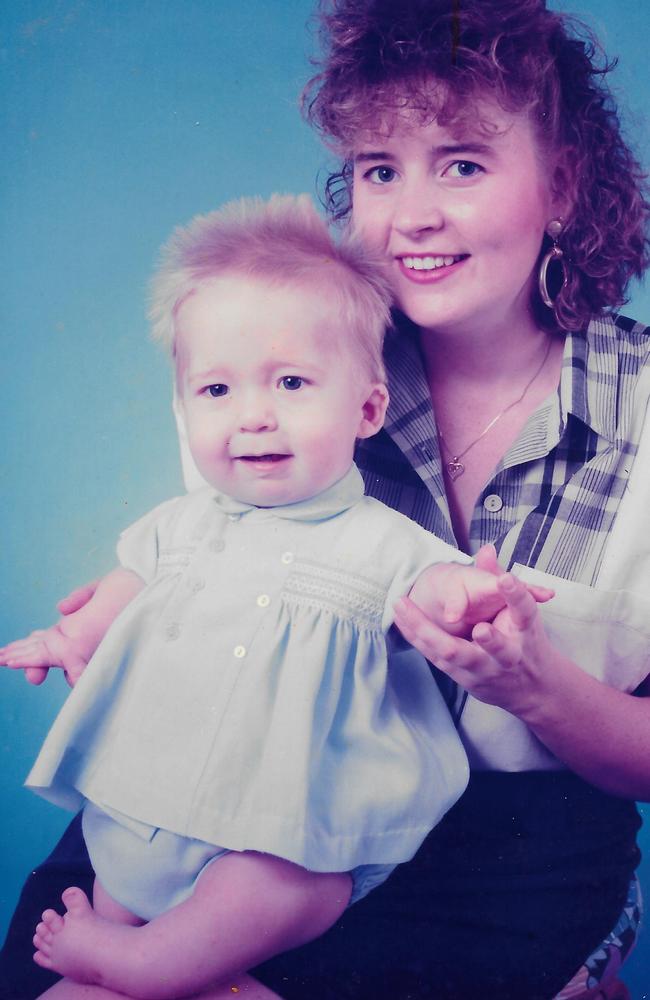
HM: Ha … are you at your happiest when you’re making others laugh?
GP: I just like having fun with other people.I say it how it is, and I like other people like me as well. Honest people. I went out on the weekend on my quad bike with a friend, and I said, ‘where do you want me to meet you? The south side or the north side of the bridge?’ She said, ‘under the bridge you little troll!’. Funny. Not many people would say that, but I liked it. I like people that have character.
HM: Is it true you speak fluent Spanish?
GP: It’s bullshit. I remember saying that once. I also said that I liked knitting and growing my own tomatoes. It’s funny what becomes fact.
HM: What about the part where you say supermodels had sent you fan mail?
GP: No that’s true. Erin Holland was Miss World Australia. She’s from Cairns and sent me a message of congratulations. She said, ‘you’re going to put me out of a job with 7. So good tonight. I grew up in Freshwater (which is in Cairns). Keep doing awesome things’.
HM: I have read also that your favourite holiday was spent in Vegas. Grant ‘Scooter’ Patterson in Vegas sounds like a dangerous proposition.
GP: It was very dangerous. I was on a Las Vegas strip cop show. I need to ring them up and see if they can send the vision to me. It used to be on YouTube, but they’ve taken it off. I’d had a bit too much to drink …
HM: Who do you barrack for in the footy?
GP: The Brisbane Lions.
HM: Why do you love footy so much?
GP: It’s a good question. Being in Cairns I should be more rugby orientated, but I enjoy AFL a lot more than rugby because there’s more happening. In rugby they are just running into each other. There’s more to AFL than just throwing a ball sideways.
HM: In 10 years’ time, after you’ve won gold in Brisbane ….
GP: Hopefully I make it to 2032. Another thing I’d like to tick off is finding a lovely lady, but you can’t rush those things.
HM: In 10 years’ time, you’ve won gold in Brisbane at your home Olympics, you’ve got a great partner, and you’re inspiring the next generation.
GP: I want to inspire the next generation to get out there and have a go. Dream big, get off the phone and go and try and live the dream.



